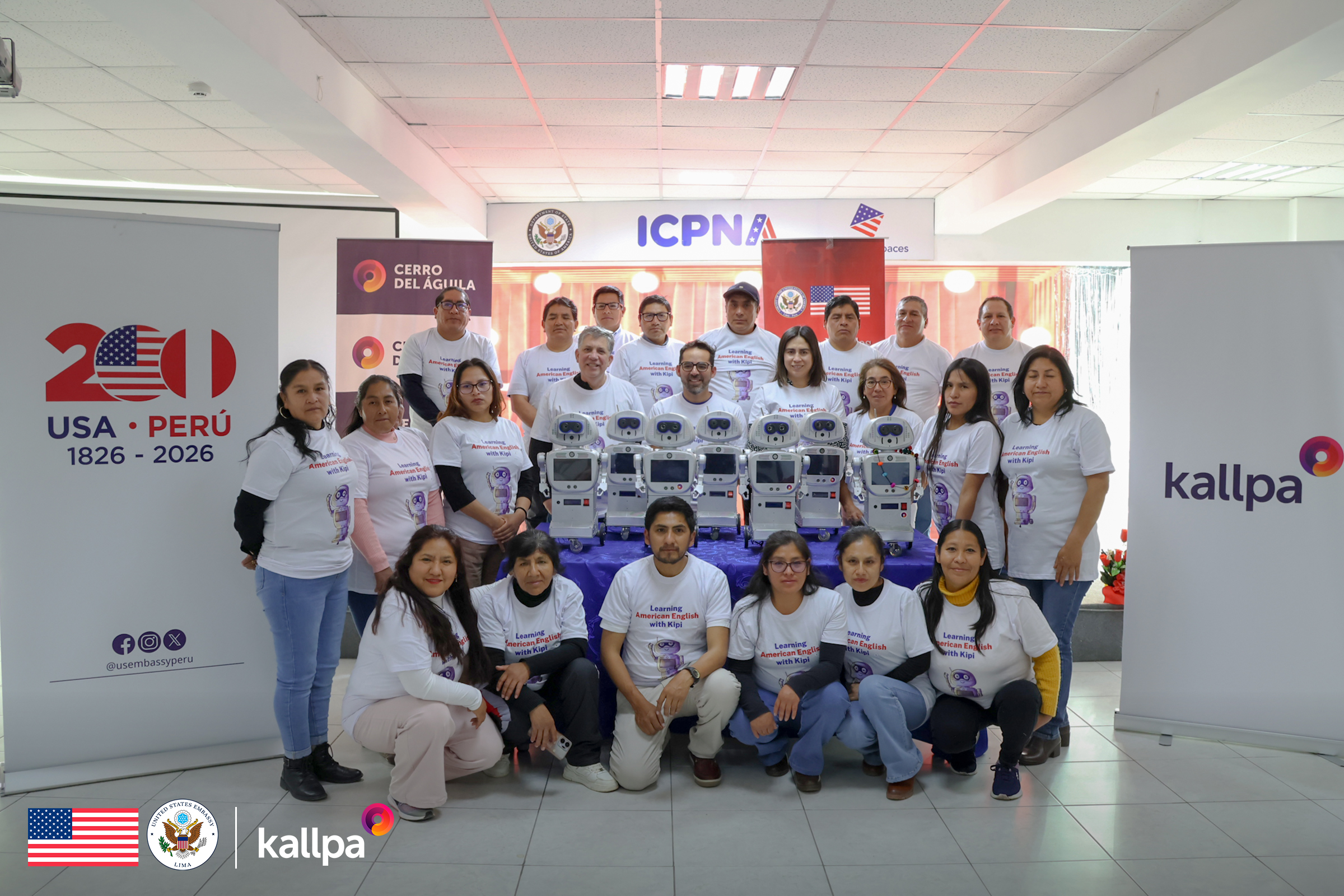Kallpa Generación, in partnership with the U.S. Embassy in Peru, conducted a training session at the ICPNA Huancayo headquarters, where 21 teachers from the districts of Andaymarca and Surcubamba, in the province of Tayacaja, were trained in English using Kipi, the Quechua-speaking robot. This semester, the program is in a pilot phase, aiming to strengthen inclusive education and expand learning opportunities in these high Andean regions.
The six Kipis delivered to schools are equipped with specialized software that facilitates interactive English teaching, adapting to the specific needs of each community. During the training, teachers participated in hands-on workshops that will allow them to integrate this tool into their teaching methods, thereby improving educational quality. This initiative reaffirms the commitment to sustainable development and educational innovation in Quechua speaking regions.
“Providing access to English, together with Kipi’s technology, opens new doors for students’ futures. This not only enhances academic opportunities but also contributes to the social and economic development of the communities involved,” emphasized Luis Pérez-Egaña, Deputy Manager of Social Investment Management at Kallpa Generación.
The Kipi robot, created by the Huancavelica based teacher Walter Velásquez, emerged as a solution to the challenges faced by education in remote areas, especially during the COVID-19 pandemic, when distance learning became complex. Over the past three years, seven units have traveled to various institutions in Tayacaja (Huancavelica), delivering content aligned with the primary school curriculum and helping to close educational gaps.
“Thanks to partnerships like this one, we can transform the reality of rural communities. Technology, when adapted to local needs, becomes a powerful tool to improve education,” said Jenny Pesantez, Public Diplomacy Officer at the U.S. Embassy in Peru.
Through this joint effort, Kallpa Generación and the U.S. Embassy reaffirm their commitment to strengthening education in Huancavelica, promoting projects that combine innovation, technology, and social development to benefit the country’s most remote communities.


